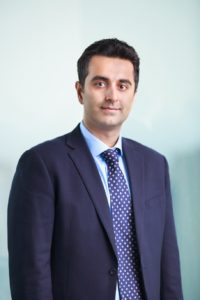Resilient Private K-12 Sector In The UAE Set For Steady Enrolment In AY 21
The K-12 education sector in the largest markets of the UAE i.e., Dubai and Abu Dhabi, is set for a growth in enrolment this year, according to the latest insights from strategy consulting firm, L.E.K. Consulting.
According to L.E.K.’s latest report, parents in the Early Years segment are expected to send their children to school within the next year with the return of positive market sentiment following the successful vaccination drive and the nation’s strong results in managing the pandemic.
The report also indicates that the economy is expected to bounce back strongly over the next few years, resulting in a growth in population and a corresponding increase in demand for K-12 schools.
According to the report, Dubai and Abu Dhabi recorded only less than 3 per cent decline in enrolments through the pandemic year,compared to relatively higher declines in several countries across the world. The slight fall was also primarily observed in the budget segment.
In Abu Dhabi, the strong demand from the local population offset any significant impact on the growth of the K-12 sector. Emiratis comprise 30-35 per cent of enrolment in the premium and super-premium segments (AED 75,000+ annual fees) and have driven growth in these segments. Demand from Emiratis has remained strong during AY21, with private international K-12 enrolments for the local population reaching a CAGR of 2.6 per cent in the past year, while expat enrolments shrunk by about 5.7 per cent.
Across Dubai’s 208 schools, the reduction in enrolments was primarily in the Early Years grades as parents’ concerns over safety surged. In all, the number of Early Year grade enrolments fell from about 28,000 to 23,000 in 2021. Enrolment decline – also led by factors such as people relocating and students temporarily switching to home schooling – isexpected to reverse in the upcoming year.
L.E.K. data also provides incisive analysis on curriculum and location trends, further reinforcing that the K-12 sector is resilient. UK curriculum dominates schools in Dubai followed by Indian curriculum.The Jumeirah area which dominates demand for premium schools, saw highest growth in terms of private K-12 enrolment over the past four years and recorded a CAGR of 4 per cent even in the pandemic year.
Ashwin Assomull, head of L.E.K. Consulting’s Global Education Practice, said that there is also a shift in parent preferences to opt for larger school groups, “The response of larger schools to the pandemic made it apparent that they are better suited to dealing with the shift to online. Larger schools pivoted almost overnight, brought in the best of global talent to stay on top of the situation and in many markets set an example for public sector institutions. As students have returned to their classrooms, the larger school groups have been able to invest in developing safe back-to-school strategies which many of their single site competitors have been less adept at doing.”
From AY 2017–2020, enrolments in schools across the Dubai and Abu Dhabi have grown, with Dubai recording a CAGR of 3 per cent in enrolments through this period. In the premium category especially, enrolments grew at a CAGR of ~8% and ~6% from AY 2017–2020in Dubai and Abu Dhabi respectively. In comparison with the mid-price segment (annual fee ranging from AED 18,000 – 35,000), which grew at a CAGR of ~5% during the same period, premium schools have led the growth for the overall K-12 sector in UAE.
Ultimately, these insights provide a glimpse into the strategic advantages of operating in this very resilient market. Given the positive demand and supply drivers, the K-12 landscape remains an attractive prospect in the UAE.
Ashwin Assomull concludes, “For investors and operators seeking to leverage these favourable market trends, there are various expansion strategies adopted by key stakeholders to strengthen their foothold in the K-12 sector. From greenfield opportunities to acquisitions, the unique opportunities available to new and incumbent players can generate long-term value, despite these short-term disruptions.”






